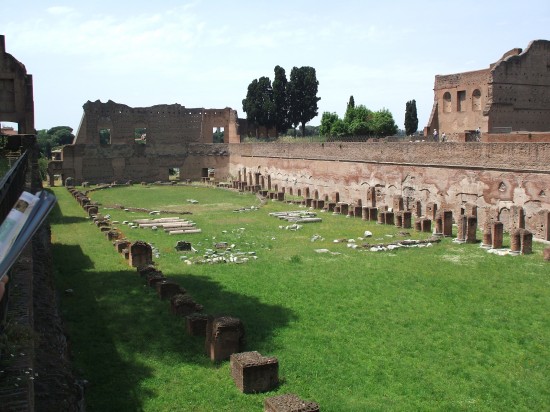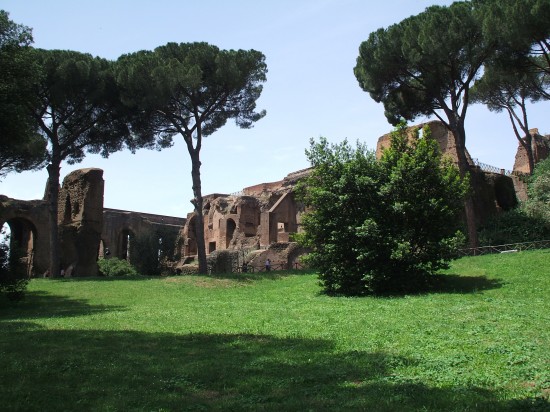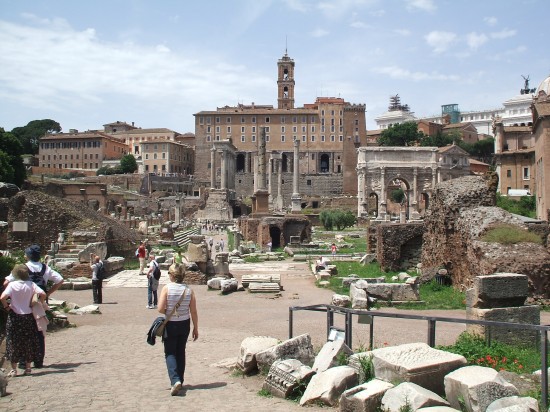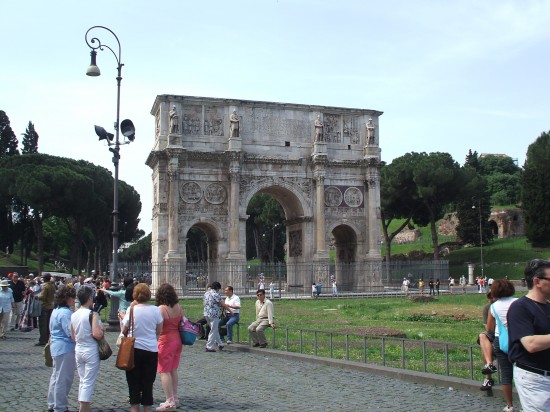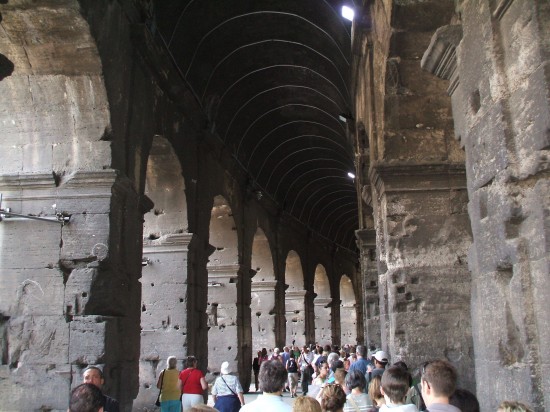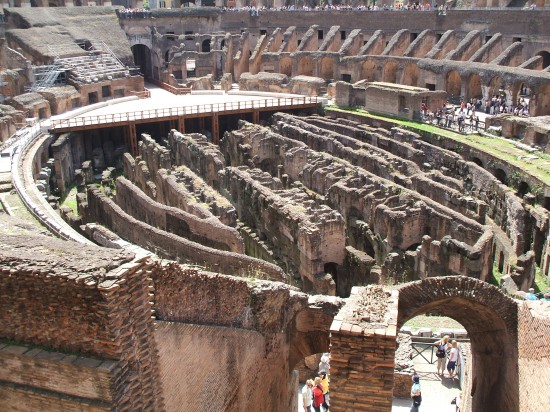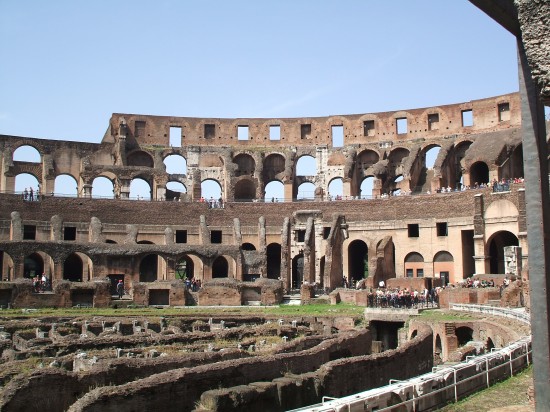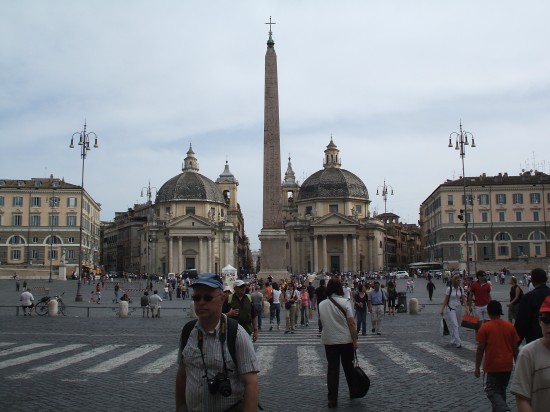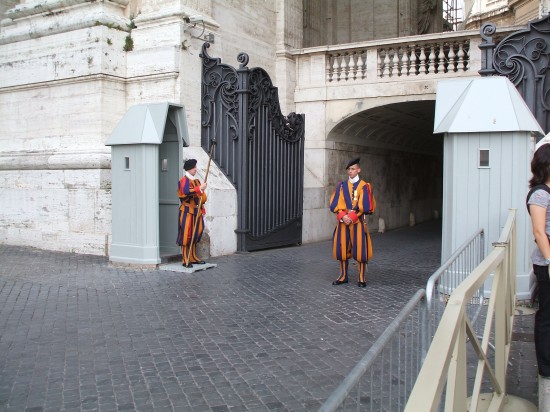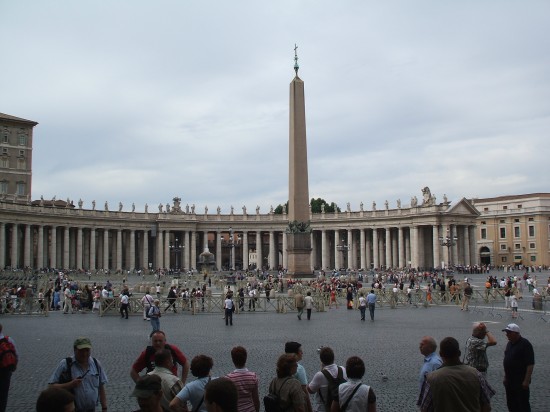Is a Picture Worth a Thousand Words? Entry #29
Matthew was annoyed. He was annoyed at the figure in gray for distracting him, but he was more annoyed with himself for allowing this mysterious stalker to distract him. He was in Rome, walking across the top of the Palatine Hill, and all he could think about was some crazy person that was following him for an unknown reason (ordinarily all he had to worry about was Jack, a crazy person who followed him primarily out of force of habit, as far as Matthew could tell). He was walking through the ruins of the house of Augustus, or possibly Domitian, and he couldn’t appreciate it. He couldn’t even remember which house it was.
“Hey, what are you looking for?”
At that moment, however, he was mainly annoyed at Jack for noticing how distracted he was.
“I’m not looking for anyo-anything in particular,” Matthew replied, doing his best to sound calm. “I’m just looking at the ruins around us. That’s what you’re supposed to do when you visit monuments and other attractions—you look at them. Did you expect me to spend the whole time on the hill with my eyes pointed down at my feet?”
Jack shook his head. “No, you’re looking for something specific. I can tell.” Matthew had little doubt that his friend would be able to recognize the attitude of someone searching for some particular detail, because it was the attitude that his friend always adopted whenever they went somewhere. Matthew had no idea what Jack was looking for, though he had always assumed that it was occult symbols or ambigrams or some other ridiculous “clue” to the ancient, international conspiracy he liked to go on about.
Unfortunately, Jack was right. Matthew wasn’t just taking in the sights; he was looking for the gray-clad figure, but he still did not feel comfortable explaining that to him. He told himself that his reluctance to share his concerns was a safety precaution, protecting innocent bystanders from his inevitable overreaction. It was not, Matthew insisted, out of fear that his friend would think he was losing his mind. Considering Jack, Matthew wasn’t even sure whether being thought insane would be a good thing or a bad thing.
Being harassed by Jack at least kept the thoughts of the figure in gray from dominating Matthew’s mind, which allowed him to remember a few things about their current location and come up with a plausible excuse. “I’m looking for the cave,” he said.
“The cave?” Jack asked. Matthew tried to keep from grinning at the glint in his friend’s eyes. He doubted that he could have picked anything more likely to intrigue him.
Matthew nodded, working to maintain a serious face. “It’s called the Lupercal. According to legend, it’s the cave where Romulus and Remus were suckled by the she-wolf.” Matthew was surprised to see the light on his friend’s face fade into a confused frown. “You . . . you do know who Romulus and Remus are, right?”
“Who?” Jack asked. “I thought they were planets.”
Matthew sighed. It had always been both disappointing and perplexing to him that his friend knew so much more about the history of various fictional universes than he did about his own. “They’re the mythological founders of Rome,” he explained, “although some historians believe that Romulus at least may have been an actual historical figure. They were two brothers abandoned by the river as infants. They were found by a she-wolf and raised here, in a cave in the Palatine Hill.”
The light returned to Jack’s eyes. “A cradle of kings . . .”
“Well, one king, anyway.” Jack looked puzzled again. “Romulus killed his brother in a dispute. That’s why the city of Rome is named after him.”
“That’s good, I guess,” Jack said, nodding sagely. Now it was Matthew’s turn to look puzzled. “I mean, if the other brother had won, then the city would have been named Reme, wouldn’t it? That would have been terrible!”
“Uhh, right . . .”
“So where is it?” Jack asked.
“No one knows. I don’t think there is any way to know for sure about something so tied up with mythology. They found something a few years back that they claimed was the Lupercal, but some people disputed it.”
“The mystery remains,” Jack said solemnly, leaning on a nearby railing and staring out at the ruins. “Hey, do you think this could be it?”
“What?”
“This, right here!” Jack said excitedly, pointing at the lowered area in front of them.
Matthew stared at his friend. Was there nothing he couldn’t get wrong? “You do know what a cave is, right?” he asked. “Caves have ceilings.”
“But this is an ancient cave,” Jack pointed out. “Maybe the roof eroded away over the centuries and now it’s open to the air.”
Matthew had no counter to this argument. Any science above about the eighth-grade level was beyond him. Fortunately, he had another perfectly good objection. “The walls are clearly man-made. This isn’t a cave—it’s the ruins of a brick building. It looks like it might have been an arena or a race track of some sort.”
“But Romulus and Remus were the founders of Rome,” said Jack, refusing to be put off his idea. “They were powerful men. You think they’d let the cave they grew up in stay as just a simple cave? They probably went back later to fancy up the place. Or at least Romulus did. You said this was Palace Hill, right? So he came back and turned it into a palace.”
“It is not a cave,” Matthew insisted. “And it never was. We’re on top of the hill, not down in it.”
“How can you be so sure?” Jack asked playfully. “I don’t think you can say that without going down there to check.”
“Forget it,” Matthew said wearily. “I’ve jumped down into enough off-limits pits for one day.”
Jack grinned. “I thought you said you were pushed.”
“Right. I was pushed.”
Posted in Is a Picture Worth a Thousand Words? |  No Comments »
No Comments »
